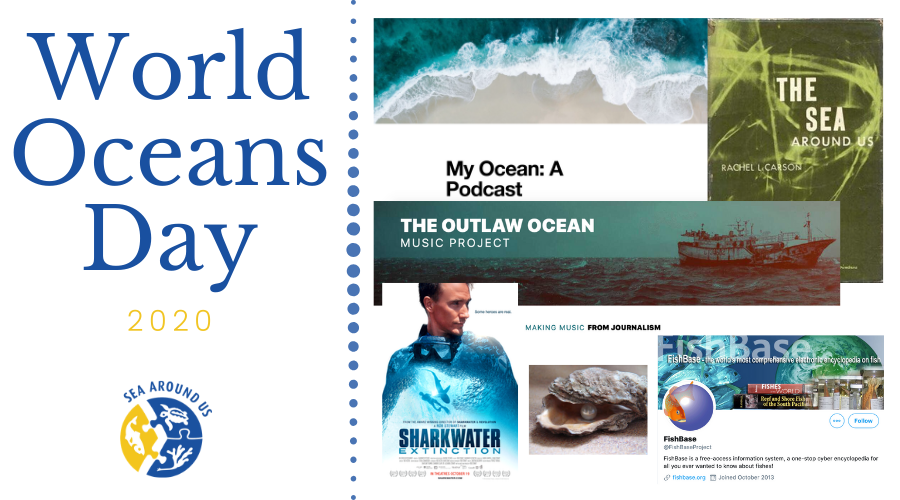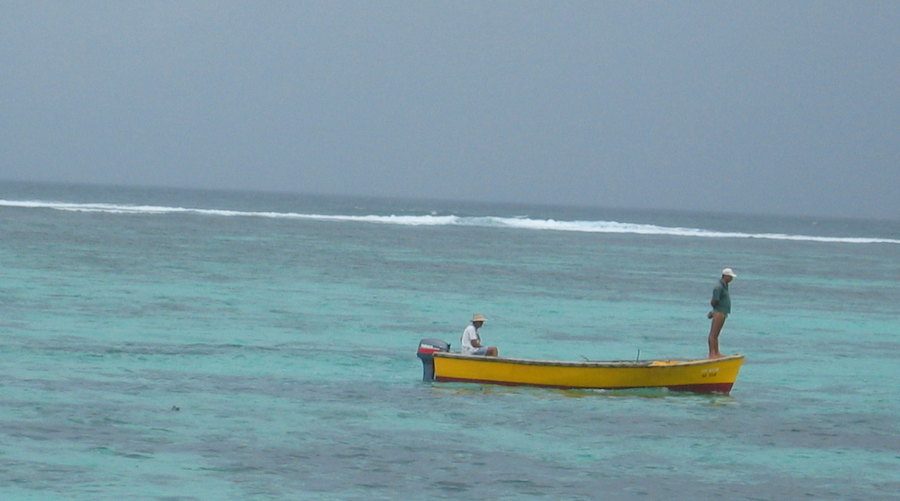The year 2020 marks the 30th anniversary of FishBase and the 15th anniversary of SeaLifeBase, two online global biodiversity information systems that, together, provide biological and ecological information on more than 110,000 marine species.
World Oceans Day 2020 – Ocean-related content you can enjoy at home
 World Oceans Day is being celebrated differently in 2020.
World Oceans Day is being celebrated differently in 2020.
As humanity is still dealing with the impacts of the COVID-19 pandemic, most ocean-lovers will have to resist the desire to spend June 8 by the beach. But not being able to get physically to the ocean doesn’t mean that we can’t learn more about it. This is why the Sea Around Us team prepared a list of ocean-related resources that we can all enjoy from the comfort of our homes.
Putting the spotlight on Southern Mediterranean, Arabian Peninsula fisheries
In the midst of the covid-19 pandemic, Myriam Khalfallah defended her PhD dissertation titled Data-poor Fisheries: Case studies from the Southern Mediterranean and the Arabian peninsula.
Despite having to present from her living room via a videoconferencing system to comply with the physical distancing measures imposed by the B.C. health authorities, Khalfallah obtained unanimous approval for her thesis.
Protected areas’ location may hinder conservation efforts of refugee species

Panda image by KAM_1958, Wikimedia Commons. Mediterranean seal image by M. Cedenilla, CBD-Habitat.
The tendency to place protected areas in habitats that are less attractive to humans because they are not very productive may be the reason why many species remain threatened and continue to decline.
Seychelles, a baseline for a Blue Economy

Men fishing in Seychelles. Photo by Tiare Scott, Flickr.
Comprehensive fisheries data are needed in the Republic of Seychelles to back the country’s path towards a blue economy, where environmentally sustainable and equitable practices are implemented to make use of various ocean resources for economic growth.
New research by the Sea Around Us – Indian Ocean, in collaboration with Hanna Jabour Christ of the Marine Futures Lab at the University of Western Australia, revealed that there are discrepancies between the actual quantities and species of fish caught in the Seychelles Exclusive Economic Zone and what is being reported by regulatory agencies and the Food and Agriculture Organization of the United Nations.







